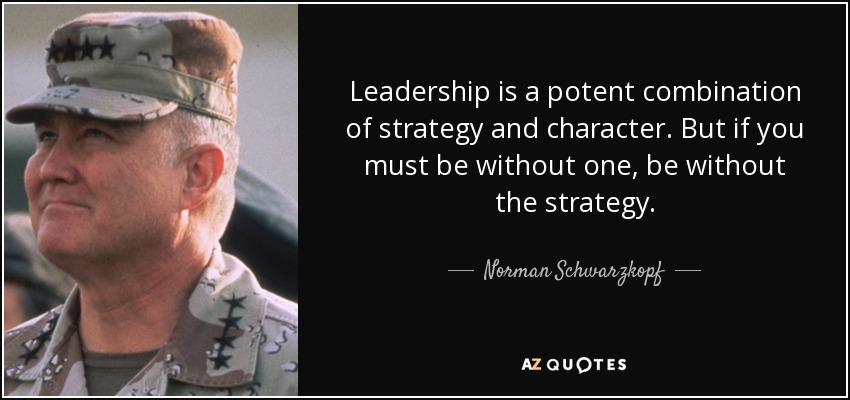Click here to return to Blog Post Intro

Wolfe claims that there are six key characteristics for biblical leadership:
- Integrity and Credibility,
- Example,
- Humility,
- Relationships,
- Servant leader, and
- Calling and Passion.
Christian leadership is especially built upon the Christ-like character—the focus of his book.
LESSON ONE: WHAT IS A LEADER?
Leadership has been given a number of definitions over the years. Here are a few:
- Warren Bennis and Joan Goldsmith: A leader is someone who has the capacity to create a compelling vision that takes people to a new place, and to translate that vision into action. Leaders draw other people to them by enrolling them in their vision.
- James Burns: Leadership is leaders inducing followers to act for certain goals that represent the values and the motivations—the wants and needs, the aspirations and expectations—of both leaders and followers.
- Lao Tzu: A leader is best when people barely know he exists, when his work is done, his aim fulfilled. They will say: we did it ourselves.
- Sam Houston: A leader is someone who helps improve the lives of other people or improve the system they live under.
- Andrew Carnegie: No man will make a great leader who wants to do it all himself, or to get all the credit for doing it.
- M. Kelly: The difference between a boss and a leader: a boss says, ‘Go!’ -a leader says, ‘Let’s go!’
- Max de Pree: The first responsibility of a leader is to define reality. The last is to say thank you. In between, the leader is a servant.
Characteristics of a Leader
In his book The Perfect Leader, Kenneth Boa described these 15 characteristics of a leader:
- Integrity
- Character
- Values
- Purpose and passion
- Humility
- Commitment
- Vision Casting
- Innovation
- Decision-making
- Problem solving
- Team building
- Communication
- Encouragement
- Exhortation
- Building relationships.
In their book Leadership Essentials, Greg Ogden and Daniel Meyer provide these ten characteristics:
- Holy: developing a vision for Christ-like character
- Habitual: cultivating spiritual disciples
- Humble: keeping watch over our souls
- Kneeling: embracing servant love
- Teaming: building teams to accomplish the mission
- Stewarding: stewarding our gifts, passions and personality
- The Compelling Christ: loving passionately
- The Embracing Kingdom: engaging people in mission
- Helping Others See: lifting people out of lethargy
- Taming Temptations: facing the dangers of money, sex and power
Henry and Richard Blackaby point out that “spiritual leadership is moving people on to God’s agenda.” Robert Clinton defines a biblical leader this way, “Christians leaders are servants with the credibility and capabilities to influence people in a particular context to pursue their God-given direction.”
Greg Ogden and Daniel Meyer remind us that the Bible is more concerned about who a leader is than what a leader does. Therefore, being a biblical leader is a matter more of the heart than outward appearance.
LESSON TWO: CHARACTER—THE BIG PICTURE
Only after people are convinced that you’re a person of good character who is worthy of leading will they follow the mission and vision. The word “character” is derived from the Latin word that means “a mark” or “a distinctive quality”. In other words, a person of good character is a person of moral excellence that distinguishes him from others.
In his book, Empowered Leaders, Hans Finzel elaborates on eight qualities of character:
- Purity of heart, mind, and hands …the problem of sin
- Posture of servant-hood …the problem of pride
- Perseverance …the problem of follow-through
- Predictability and sustainable trust …the problem of integrity
- Promises kept and confidences held …the problem of confidence
- Partnership and parenthood …the problem of being faithful at home
- Prayer …the problem of intimacy with the Almighty
- Passion for Christ …the problem of sincerity
Biblical leaders need to show what it means to trust in Christ in all areas of life and ministry.
In 2 Peter 1:5-9, Peter instructs believers to “make every effort” to add to their faith. The result is continued effectiveness.
How we live our lives reflects what we truly believe. Leaders’ words (doctrines taught) will have greater weight with those he leads, when his life (example) matches his words.
In The 21 Indispensable Qualities of a Leader, John Maxwell addresses the importance of character. He suggests these four actions to improve your character:
- Search for the cracks: identify anywhere you might have cut corners, compromised, or let people down.
- Look for patterns: Is there a particular area where you have a weakness, or do you have a type of problem that keeps surfacing?
- Face the music: The beginning of character repair comes when you face your flaws, apologize, and deal with the consequences of your actions.
- Rebuild: Now that you’ve identified areas of weakness, create a plan that will help you avoid making the same mistakes again by the grace of God and with the help of the Holy Spirit.
LESSON THREE: INTEGRITY AND CREDIBILITY
Christian leaders are servants with the credibility and capabilities to influence people in a particular context to pursue their God-given direction.
Stephen Covey describes four cores to credibility:
- Integrity
- Intent
- Capabilities
- Results
He illustrates these four cores through the metaphor of a tree. Integrity is essentially below the surface. It is the root system out of which everything else grows…it is absolutely vital to the nourishment, strength, stability, and growth of the entire tree. Covey continues to define integrity as including honesty (telling the truth and leaving the right impression), congruence (when there is no gap between intent and behavior), humility (recognizing principle and putting it ahead of self) and courage (doing the right thing even when it’s hard).
Through studying many leaders and companies over the years, Warren Bennis and Joan Goldsmith identified three elements for generating and sustaining trust:
- Constancy—Whatever surprises leaders face themselves, they do not create any for the group. They maintain continuity and security.
- Congruity—Leaders walk their talk. There is no gap between the theories they espouse and they practice.
- Reliability—Leaders are there when it counts; they are ready to support their co-workers in the moments that matter.
According to John Maxwell, “Trust is the foundation to leadership. To build trust, a leader must exemplify these qualities: competence, connection and character. People will forgive occasional mistakes based on ability, especially if they can see that you’re still growing as a leader. But they won’t trust someone who has slips in character. Character makes trust possible. And trust makes leadership possible.”
In his book Being Leaders: The Nature of Authentic Christian Leadership, Aubrey Malphurs lists eight ingredients for building leadership credibility and, therefore, trust as a leader:
- Character
- Competence (effective leadership practices)
- Clarity of direction (knowing where you are leading others),
- Communication
- Conviction (passion and commitment to the ministry and the people),
- Courage (leading in difficult situations)
- Care (the leader’s demonstration of concern for the well-being of his followers that flows from a love for them), and
- Composure (a consistent display of appropriate emotions that sets a positive ministry mood, especially in difficult or crisis situations).
Malphurs goes on to describe five steps for recovering lost trust and regaining credibility as a leader:
- Admit the Mistake
- Acknowledge Responsibility
- Apologize
- Accept the Consequences
- Act to Correct the Situation
Paul Kooistra similarly teaches in Living in Grace that there is a three-fold formula for repentance:
- There is a problem
- I am the problem
- I need God’s help
LESSON FOUR: HUMILITY: TRUE GREATNESS
The Apostle Paul drew strength from remembering his own weakness, as those things made him more dependent on the power of God. Paul led with his weakness, and the Lord used him because his trust was not in himself, but in the power of the Gospel.
In Ordering Your Private World, Gordon MacDonald contrasts called persons and driven people. “Called people live from the inside out, whereas driven people live from the outside in. Called people order their private world and thereby engage their world from a centered existence. Driven people are externally focused because success standards of this world shape their motivation.”
C.J. Mahaney for his writing Humility: True Greatness states, “None of us are immune to the logic-defying, blinding effects of pride. Though it shows up in differing forms and to differing degrees, it infects us all. The real issue here is not if pride exists in your heart; it’s where pride exists and how pride is expressed in your life.”
To live out the Gospel is to have the attitude of Christ. It requires the practice of humble living—thinking of others before oneself.
In conclusion to his study on humility, C.J. Mahaney provides a practical guide to weakening pride and cultivating humility:
Always:
- Reflect on the wonder of the cross of Christ.
As Each Day Begins:
- Begin your day by acknowledging your dependence upon God and your need for Him.
- Begin your day expressing gratefulness to God.
- Practice the spiritual disciplines—prayer, study of God’s Word, worship. Do this consistently each day and at the day’s outset if possible.
- Seize your commute time (to work or school) to memorize and meditate on Scripture.
- Cast your cares upon Him, for He cares for you.
As Each Day Ends:
- At the end of the day, transfer the glory to God.
- Before going to sleep, receive this gift of sleep from God and acknowledge His purpose for sleep.
For Special Focus:
- Study the attributes of God.
- Study the doctrines of grace.
- Study the doctrine of sin.
- Play golf (or something enjoyable) as much as possible.
- Laugh often, and laugh often at yourself.
Throughout Your Days and Weeks:
- Before going to sleep, receive this gift of sleep from God and acknowledge His purpose for sleep.
- Encourage and serve others each and every day.
- Invite and pursue correction.
- Respond humbly to trials.
Jim Kouzes and Barry Posner, authors of The Leadership Challenge, write, “Humility and grace make up the antidote to the poison of excessive pride and the rapacious harm that it does in our lives. It would serve us all well to keep a dose of it handy as we deal with the complex challenges and lurking temptations of our modern organizations.”
LESSON FIVE: RELATIONAL LEADERS
Effective leadership has an attitude and focus on investing in people for the long haul.
“Leadership is a relationship,” says James Kouzes and Barry Posner, “between those who aspire to lead and those who choose to follow. There may have been a time when leaders commanded commitment but those times are long past. People follow people, not positions.”
John Maxwell lists three things to help cultivate good relationships as a leader:
- Understand people and how they feel and think
- Love people
- Help people.
How does a shepherd-leader care for the people in the church? Using Jesus as our model we can conclude that a good shepherd:
- Knows each sheep by name (John 10:3, 14, 27)
- Is always with his sheep (Luke 22:27b)
- Leads his flock (John 10:3b-4)
- Displays deep concern for those who are lost (Matthew 18:12-14; Luke 15:4-6)
- Protects his sheep (John 10:10)
- Is prepared to die for his sheep (John 10:11, 15, 17-18)
LESSON SIX: SERVANT LEADERS
Humility is the heart condition of a servant leader. Pride, position, power or authority cannot motivate a servant leader. As John Maxwell has said, “It is true that those who would be great must be like the least and servant of all.”
Jesus did not see servant-leadership in the teachers of the law and the Pharisees. On the contrary, he saw abuse and concern for position and recognition. A biblical leader, therefore, is not eager for titles, positions and power. He only wants to serve others.
Blanchard & Hodges in The Servant Leader make constructive observations about servant leadership. Servant leaders understand that everyone needs to be heard, praised, encouraged, forgiven, accepted and guided back to the right path when they drift off course. As leaders, we need to practice these behaviors. Why? Because Jesus did!
Aubrey Malphurs states, “Christian leaders are servants with credibility and capabilities, who are able to influence people in a particular context to pursue their God-given direction.”
In summation, biblical leadership is more about the heart and attitude of the leader, then position or authority. Leading biblically means being a servant.
In conclusion to the Columbia International University Connection article “Servants of the Servant: Portrait of a Servant-leader,” Dr. Howard states, “Servant-leaders must undergo daily spiritual surgery under the Spirit-illumined exposure to God’s word, under girded by earnest prayer for God to search one’s thoughts and meditations.”
LESSON SEVEN: THE LEADER’S CALL AND PASSION
Calling keeps a leader going when things become difficult. It serves as a compass pointing to the direction God has for him and those he leads.
When there is a match between a person’s calling, capabilities and character and his role, there is good leadership placement. According to Audrey Malphurs, “Good placement results in maximum kingdom effectiveness. Good placement results in more influence and ministry effectiveness for the Savior. Poor placement, however, results in less influence and limited spiritual effectiveness.”
Oz Guinness explains a special calling in relationship to the ordinary call. “A special call refers to those tasks and missions laid on individuals through a direct, specific, supernatural communication from God. Ordinary calling, on the other hand, is the believer’s sense of life-purpose and life-task in response to God’s primary call, ‘Follow me,’ even though there is no direct, specific, supernatural communication from God about a secondary calling.”
In living out your calling, however, you need to remember that it is broader than your gifts and specific ministry. Your calling also encompasses your organization, your family, your church, your community and the world. Your “calling” should not isolate you, but rather connect you with the world around you.
John Maxwell states, “I believe that each of us has a dream placed in the heart. I’m not talking about wanting to win the lottery. That kind of idea comes from a desire to escape our present circumstances, not to pursue a heartfelt dream. I’m talking about a vision deep inside that speaks to the very soul. It’s the thing we were born to do. It draws on our talents and gifts. It appeals to our highest ideals. It sparks our feelings of destiny. It is inseparably linked to our purpose in life.”
LESSON EIGHT: THE MAKING OF A LEADER
Henry and Richard Blackaby write that God uses influences such as, home life, failures, crises, personal struggles, and success through hardships to shape us. Blackaby and Blackaby continue, “there is an added dimension to the growth of a spiritual leader that is not found in secular leadership development. That dimension is the active work of the Holy Spirit in leader’s lives.”
From Robert Clinton’s Making of a Leader, there are six phases of leadership development:
Phase 1: Sovereign Foundations
This occurs in the formative years. God works through your family life, your environment, people of influence and even difficulties.
Phase 2: Inner-Life Growth
During this phase God uses the following to build the emerging leader’s character:
- Integrity Checks: A test God uses to evaluate intentions and gives and opportunities to strengthen character,
- Obedience Checks: A process item through which a leader learns to recognize, understand, and obey God’s Word, and
- Word Checks: A process in which the leader understands how to apply God’s Word in life.
Three principles flow from these processes:
- Integrity is foundational for effective leadership; it must be instilled early in a leader’s character.
- Obedience is first learned, and then taught.
- Leadership gifts primarily involve word gifts, which initially emerge through word checks.
Phase 3: Ministry Maturing
Robert Clinton suggests that God develops the leader by taking him through four stages:
- Entry into ministry: Calling, encouragement from others, and gift recognition,
- Training: Developing spiritual gifts and skills for ministry,
- Relational learning: Loving others, conflict resolution, backlash, how to motivate and influence others and servanthood leadership, and
- Discernment: Application of biblical principles in life and ministry.
Phase 4: Life Maturing
God does not stop working on character after moving someone into leadership. God continues to form character throughout the ministry of a leader.
Key principles are played out in the ministry, which reflect a deepening character. First, ministry flows out of being. Second, the process of isolation from normal ministry involvement, which leads to a deeper or new relationship with God. Third, conflicts lead to greater faith and trust in God. Fourth, life crises lead to greater faith and trust in God.
Phase 5: Convergence
Convergence occurs when God moves a leader into a role that matches his or her gift-mix, experience, temperament and calling.
Clinton acknowledges that the majority of Christian leaders never experience convergence, let alone Afterglow or Celebration.
Phase 6: Afterglow or Celebration
Some leaders, however, who experience convergence, also get to see a lifetime of ministry culminating in an era of recognition and influence or Afterglow or Celebration
There are several pitfalls of leadership. Henry and Richard Blackaby present ten of the most common pitfalls:
- Pride causes Christian leaders to take credit not only for what their people have done but also for what God has accomplished.
- Sexual sin.
- Cynicism
- The hunger for wealth and possessions can destroy spiritual leaders. When leaders hunger for wealth, they can also be tempted to act unethically.
- Mental laziness. Leaders need to be life-long learners.
- Oversensitivity to criticism will not allow a leader to grow where he needs to grow.
- Spiritual lethargy is a pitfall avoided by being rooted and built up in Christ.
- Domestic neglect. Most spiritual leaders love their families. However, many also get so focused on their ministry that they neglect their families. Noticing how a leader handles his family responsibilities should be a focus for evaluating emerging leaders, as well as established leaders (See Deuteronomy 6:4-9; 1 Timothy 3:4).
- Administrative carelessness. To avoid the ninth pitfall, practice biblical conflict resolution and clear communication.
- Prolonged position holding. Plan for your replacement and train the next generation of leaders.
In Empowered Leaders, Hans Finzel shows that those who have finished well displayed six qualities.
- They maintain a vibrant relationship with God.
- They maintain a lifelong posture of learning and growing.
- They exhibit Christ-like character, the fruit of the Spirit.
- They live out their convictions in real life.
- They leave behind one or more ultimate, lasting contribution to the church or ministry.
- They walk with a growing sense of destiny. Those who make it to the end have a sense of God’s call on their lives throughout their lives. They are convinced that God has a plan for their lives, and they are determined not to falter in seeing that plan through the end.
Whether you are beginning your adventure as a leader in the church or have served a long time, we need to focus on growing in Christ-like character.
Thanks to Richard Wolfe, Out of This World Leaders have many practical suggestions to develop the Character of Christ, as we shoot for the stars!






